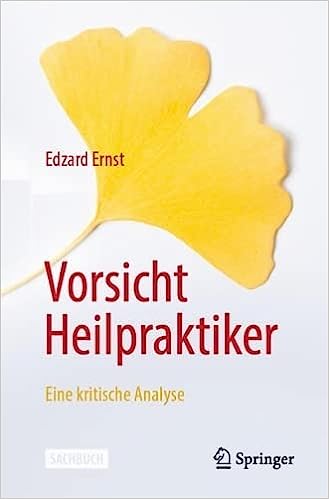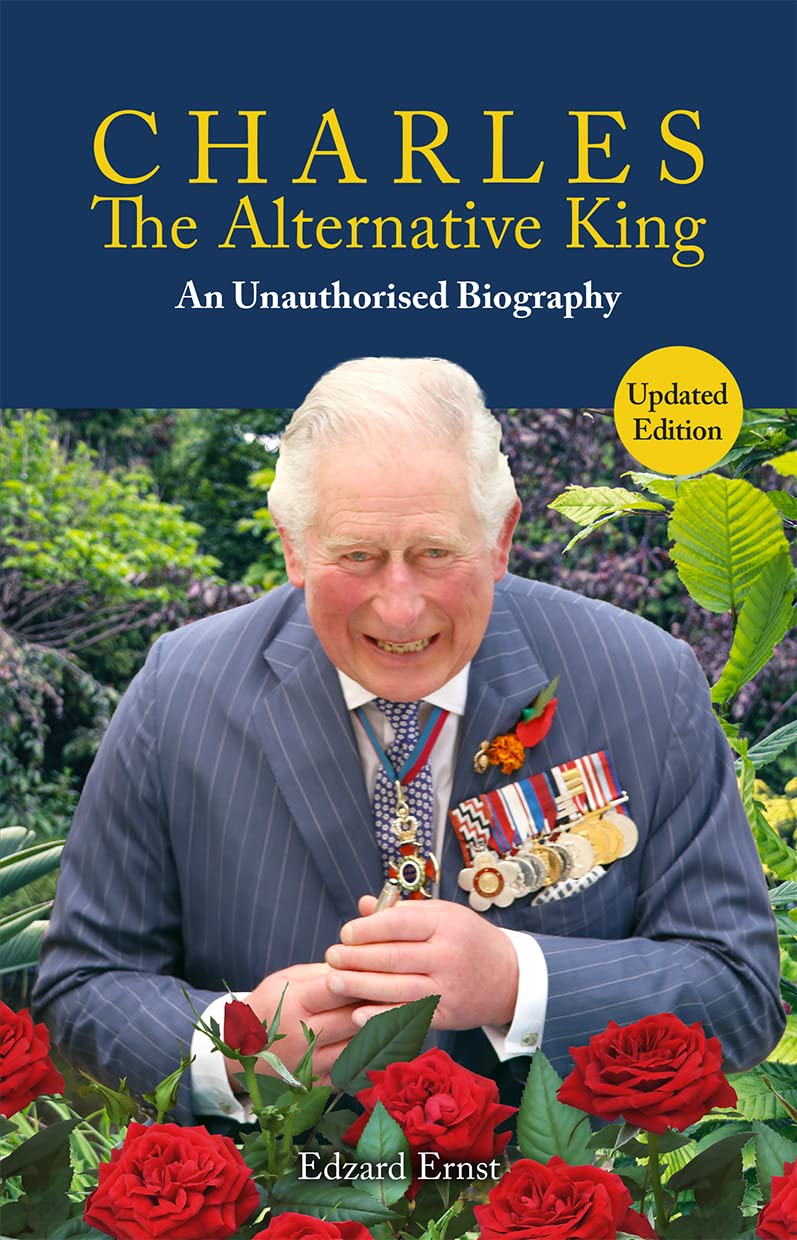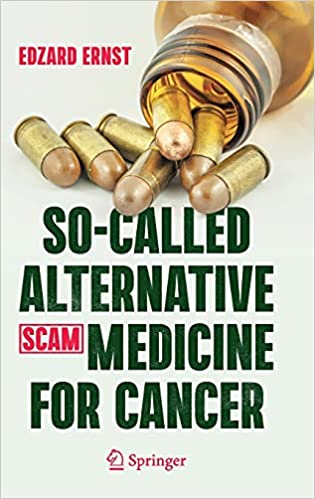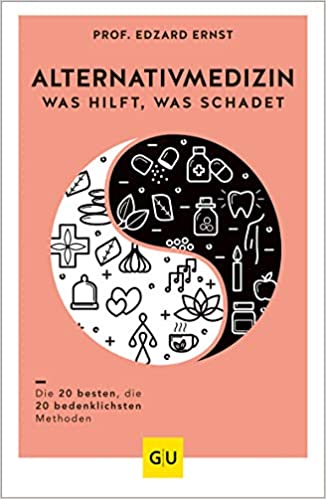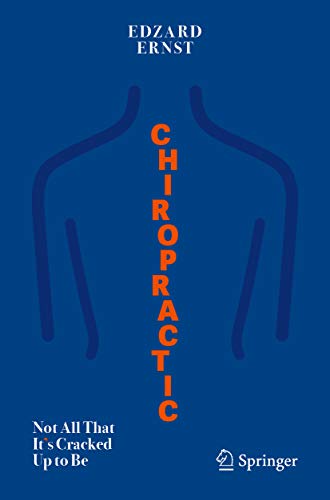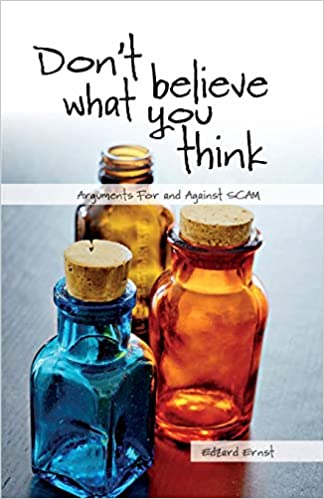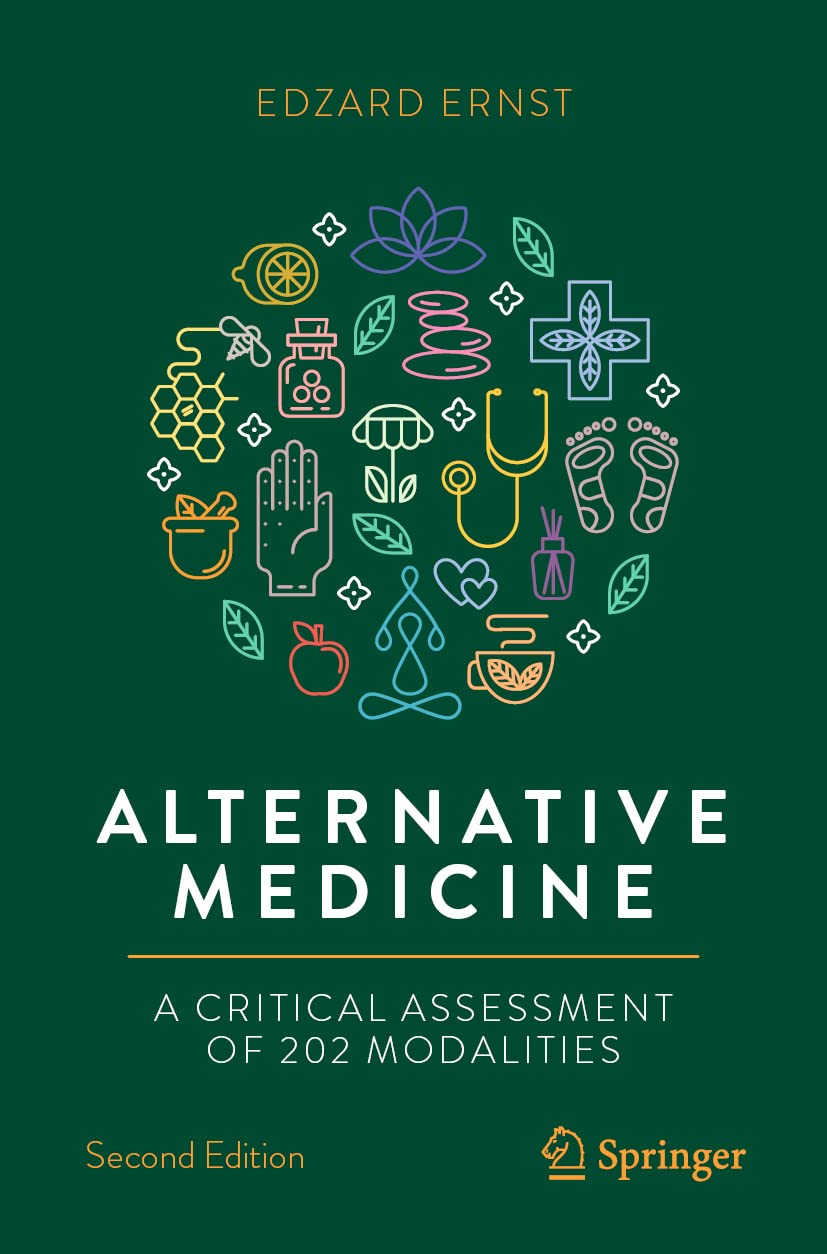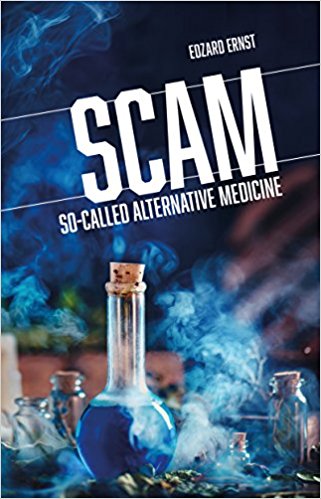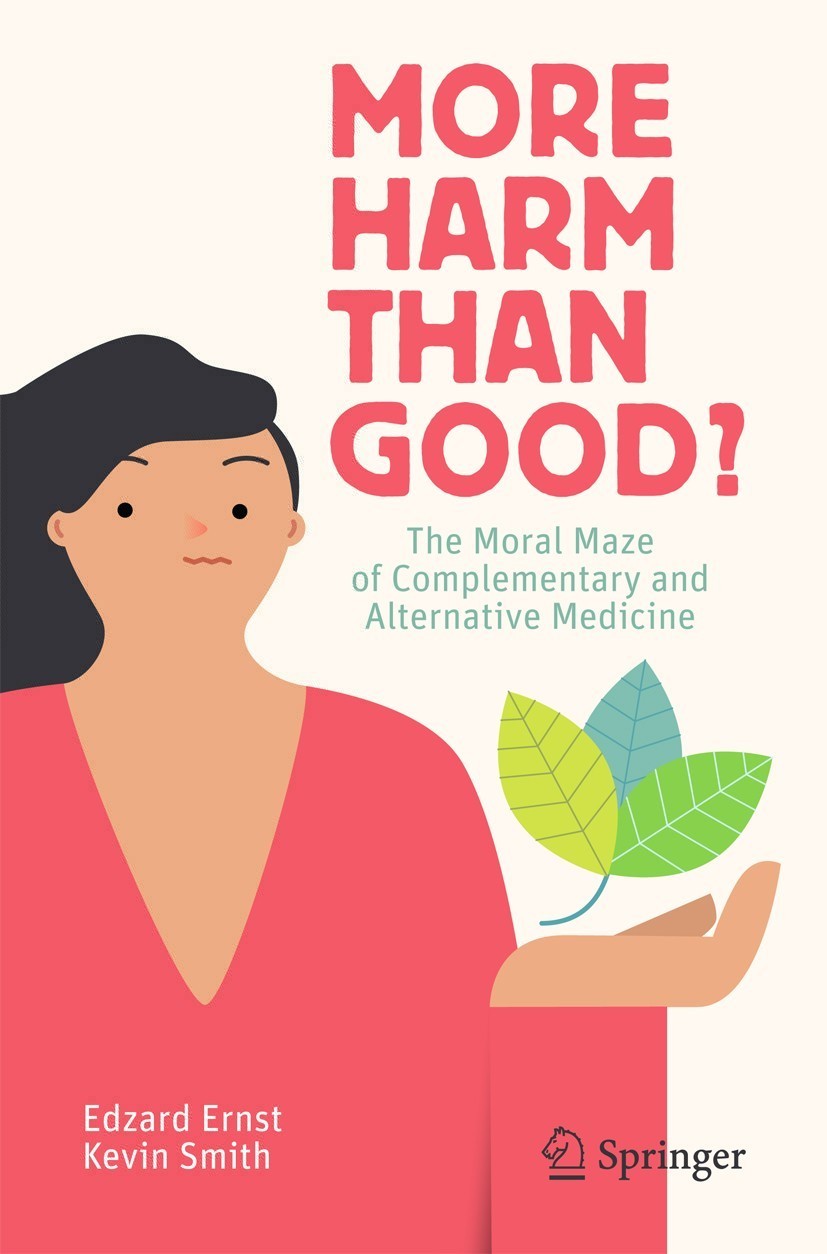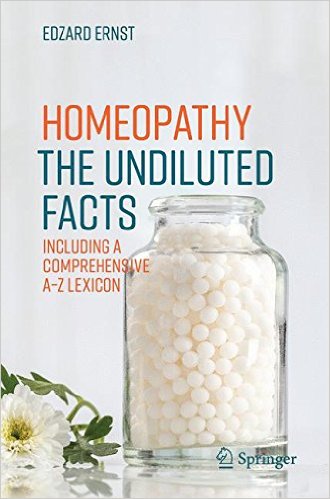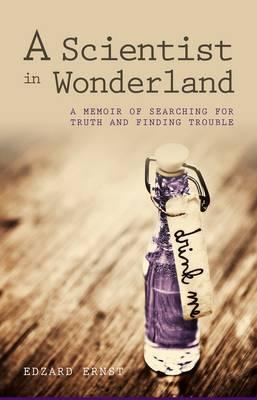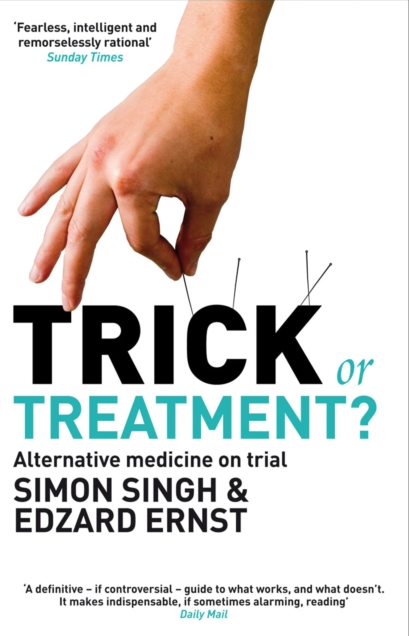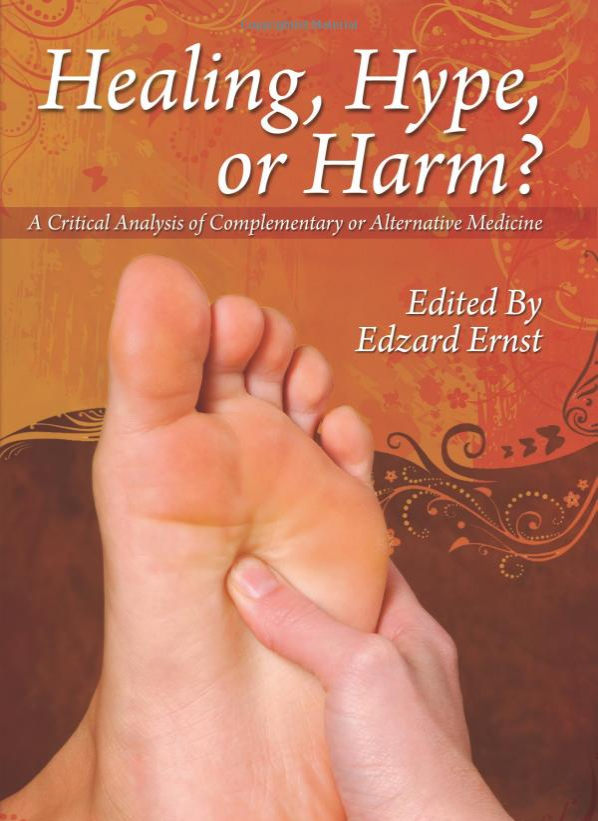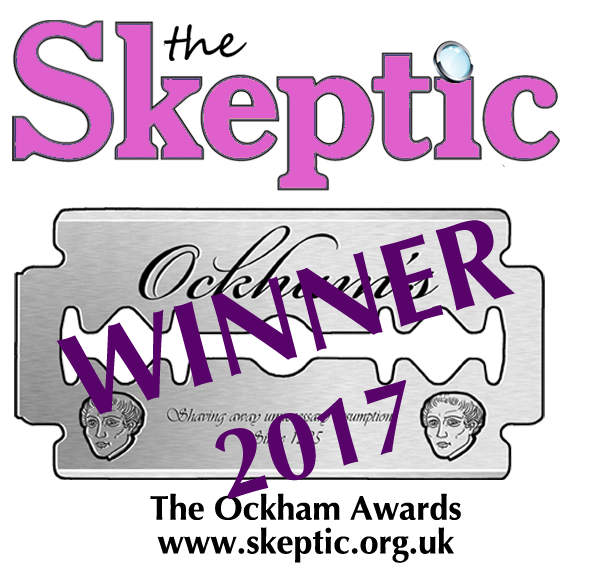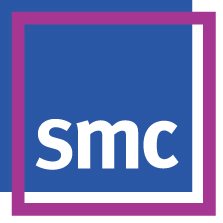Personally, I find our good friend Dana Ullman truly priceless. There are several reasons for that; one is that he is often so exemplarily wrong that it helps me to explain fundamental things more clearly. With a bit of luck, this might enable me to better inform people who might be thinking a bit like Dana. In this sense, our good friend Dana has significant educational value.
Recently, he made this comment:
According to present and former editors of THE LANCET and the NEW ENGLAND JOURNAL OF MEDICINE, “evidence based medicine” can no longer be trusted. There is obviously no irony in Ernst and his ilk “banking” on “evidence” that has no firm footing except their personal belief systems: https://medium.com/@drjasonfung/the-corruption-of-evidence-based-medicine-killing-for-profit-41f2812b8704
Ernst is a fundamentalist whose God is reductionistic science, a 20th century model that has little real meaning today…but this won’t stop the new attacks on me personally…
END OF COMMENT
Where to begin?
Let’s start with some definitions.
- Evidence is the body of facts that leads to a given conclusion. Because the outcomes of treatments such as homeopathy depend on a multitude of factors, the evidence for or against their effectiveness is best based not on experience but on clinical trials and systematic reviews of clinical trials (this is copied from my book).
- EBM is the integration of best research evidence with clinical expertise and patient values. It thus rests on three pillars: external evidence, ideally from systematic reviews, the clinician’s experience, and the patient’s preferences (and this is from another book).
Few people would argue that EBM, as it is applied currently, is without fault. Certainly I would not suggest that; I even used to give lectures about the limitations of EBM, and many experts (who are much wiser than I) have written about the many problems with EBM. It is important to note that such criticism demonstrates the strength of modern medicine and not its weakness, as Dana seems to think: it is a sign of a healthy debate aimed at generating progress. And it is noteworthy that internal criticism of this nature is largely absent in alternative medicine.
The criticism of EBM is often focussed on the unreliability of the what I called above the ‘best research evidence’. Let me therefore repeat what I wrote about it on this blog in 2012:
… The multifactorial nature of any clinical response requires controlling for all the factors that might determine the outcome other than the treatment per se. Ideally, we would need to create a situation or an experiment where two groups of patients are exposed to the full range of factors, and the only difference is that one group does receive the treatment, while the other one does not. And this is precisely the model of a controlled clinical trial.
Such studies are designed to minimise all possible sources of bias and confounding. By definition, they have a control group which means that we can, at the end of the treatment period, compare the effects of the treatment in question with those of another intervention, a placebo or no treatment at all.
Many different variations of the controlled trial exist so that the exact design can be adapted to the requirements of the particular treatment and the specific research question at hand. The over-riding principle is, however, always the same: we want to make sure that we can reliably determine whether or not the treatment was the cause of the clinical outcome.
Causality is the key in all of this; and here lies the crucial difference between clinical experience and scientific evidence. What clinician witness in their routine practice can have a myriad of causes; what scientists observe in a well-designed efficacy trial is, in all likelihood, caused by the treatment. The latter is evidence, while the former is not.
Don’t get me wrong; clinical trials are not perfect. They can have many flaws and have rightly been criticised for a myriad of inherent limitations. But it is important to realise that, despite all their short-comings, they are far superior than any other method for determining the efficacy of medical interventions.
There are lots of reasons why a trial can generate an incorrect, i.e. a false positive or a false negative result. We therefore should avoid relying on the findings of a single study. Independent replications are usually required before we can be reasonably sure.
Unfortunately, the findings of these replications do not always confirm the results of the previous study. Whenever we are faced with conflicting results, it is tempting to cherry-pick those studies which seem to confirm our prior belief – tempting but very wrong. In order to arrive at the most reliable conclusion about the efficacy of any treatment, we need to consider the totality of the reliable evidence. This goal is best achieved by conducting a systematic review.
In a systematic review, we assess the quality and quantity of the available evidence, try to synthesise the findings and arrive at an overall verdict about the efficacy of the treatment in question. Technically speaking, this process minimises selection and random biases. Systematic reviews and meta-analyses [these are systematic reviews that pool the data of individual studies] therefore constitute, according to a consensus of most experts, the best available evidence for or against the efficacy of any treatment.
END OF QUOTE
Other criticism is aimed at the way EBM is currently used (and abused). This criticism is often justified and necessary, and it is again the expression of our efforts to generate progress. EBM is practised by humans; and humans are far from perfect. They can be corrupt, misguided, dishonest, sloppy, negligent, stupid, etc., etc. Sadly, that means that the practice of EBM can have all of these qualities as well. All we can do is to keep on criticising malpractice, educate people, and hope that this might prevent the worst abuses in future.
Dana and many of his fellow SCAMers have a different strategy; they claim that EBM “can no longer be trusted” (interestingly they never tell us what system might be better; eminence-based medicine? experience-based medicine? random-based medicine? Dana-based medicine?).
The claim that EBM can no longer be trusted is clearly not true, counter-productive and unethical; and I suspect they know it.
Why then do they make it?
Because they feel that it entitles them to argue that homeopathy (or any other form of SCAM) cannot be held to EBM-standards. If EBM is unreliable, surely, nobody can ask the ‘Danas of this world’ to provide anything like sound data!!! And that, of course, would be just dandy for business, wouldn’t it?
So, let’s not be deterred or misled by these deliberately destructive people. Their motives are transparent and their arguments are nonsensical. EBM is not flawless, but with our continued efforts it will improve. Or, to repeat something that I have said many times before: EBM is the worst form of healthcare, except for all other known options.
Nipah virus (NiV) infection is a zoonosis that causes severe disease in both animals and humans. The natural host of the virus are fruit bats of the Pteropodidae Family, Pteropus genus. Human-to-human transmission has also been documented, including in a hospital setting in India. Clinical presentations range from asymptomatic infection to acute respiratory syndrome and fatal encephalitis. There is no vaccine for either humans or animals. The primary treatment for human cases is intensive supportive care. In Kerala, India, several people have died of the deadly NiV. The infection has a mortality rate of around 70%.
It was predictable that such events would bring homeopaths to the fore. This article explains:
The Indian Homeopathic Medical Association’s Kerala unit has claimed to have the medicines to treat Nipah virus. B Unnikrishnan, an association official, said homeopathy has the appropriate medicines for all types of fever and hence they should be allowed to treat the infected patients. The association has requested the state Health Minister KK Shailaja to allow their professionals to examine the records of all those patients who have been tested positive for Nipah… So far, 16 people have died and two are recovering. Some 2,000 people who came in contact with the infected patients are also being monitored.
Knowing that an international delegation of homeopaths travelled to Liberia to treat Ebola (with the official support of their respective professional organisations), this news cannot surprise anyone.
Homeopaths dilute their remedies and delude themselves.
Sadly, the victims of their dilutions/delusions are:
- their patients,
- public health,
- progress,
- and rationality.
Our good friend Dana Ullman commented on my last post that doctors are being unethical by NOT prescribing homeopathic medicines because they are breaking one of the most important medical guidelines: “First, do no harm.” Here I do not want to discuss in-depth the nonsense about homeopathy in his sentence, rather I want to focus on the notion that doctors are obliged to foremost do no harm.
The sentence ‘first do no harm’ is supposed to originate from the Hippocratic oath which allegedly all doctors have to take when finishing medical school. This is twice wrong:
- we don’t take this oath – I have read it, and it is something utterly non-applicable to today;
- the famous sentence does not appear in the oath.
But never mind the history and all that! Doctors are nevertheless obliged to ‘first do no harm’ because it is an important principle of medical ethics.
This is also not true, I’m afraid.
If it were true, doctors would have to stop practicing much of medicine instantly. Clinicians do harm all the time. Their injections hurt, their diagnostic procedures can be unpleasant and painful, their medications cause adverse effects, their surgical interventions are full of risks, etc., etc. None of this would be remotely acceptable, if it did not also some good.
And that is why the ethical imperative of doing no harm has sensibly been changed to the imperative of doing more good than harm. Of course, doctors must be allowed to do even quite serious harm, as long as their actions can be expected to generate even more good. In more common medical terms, we speak of the risk/benefit balance of an intervention:
- if the known risks of a treatment are greater than the expected benefits, we cannot ethically prescribe it;
- if the benefits outweigh the risks, we can consider it as a reasonable option.
That is all very well, but it can only apply to treatments where both the risks and the benefits are well-understood. What about the many treatments where there is uncertainty regarding either or both of these factors? This question is impossible to answer in the abstract. We need to look at the best evidence we have for each specific case and, together with the patient, try to make an informed judgement.
Now, let’s please our good friend Dana and do such an evaluation for homeopathy, as one of many examples of an alternative therapy:
- The best evidence fails to show that highly diluted homeopathic remedies have any specific effects.
- As these remedies contain nothing, they also cannot cause any harm.
Therefore, one might argue that the balance of risk versus benefit might not look all that bad. Dana and his colleagues would thus feel that it ethically legitimate to routinely use homeopathy. But this line of thought would ignore an important issue: harm can be done not just by the remedy itself. The harm caused by applying an ineffective treatment for conditions that are otherwise effectively treatable (usually referred to as neglect) can be considerable, even fatal. So, for homeopathy the true situation presents itself as follows:
- no benefit beyond placebo;
- high risk of neglect.
This results in a negative risk/benefit balance which means, as outlined above, we cannot ethically use homeopathy.
… and, of course, Dana’s statement (doctors are being unethical by NOT prescribing homeopathic medicines because they are breaking one of the most important medical guidelines: “First, do no harm.” ) turns out to be wrong on several levels.
My previous post was about the question whether lay-homeopaths can practise homeopathy without breaking their code of ethics. The answer was NO, because they lack most of the skills needed to obtain informed consent.
What about doctor homeopaths?
Can they practice homeopathy ethically?
Doctors are, of course, also obliged to follow their ethical code, and that means they too must obtain informed consent from their patients before starting a therapy. This is, for instance, what the UK General Medical Council tells their members:
You must give patients the information they want or need about:
- the diagnosis and prognosis
- any uncertainties about the diagnosis or prognosis, including options for further investigations
- options for treating or managing the condition, including the option not to treat
- the purpose of any proposed investigation or treatment and what it will involve
- the potential benefits, risks and burdens, and the likelihood of success, for each option; this should include information, if available, about whether the benefits or risks are affected by which organisation or doctor is chosen to provide care
- whether a proposed investigation or treatment is part of a research programme or is an innovative treatment designed specifically for their benefit4
- the people who will be mainly responsible for and involved in their care, what their roles are, and to what extent students may be involved
- their right to refuse to take part in teaching or research
- their right to seek a second opinion
- any bills they will have to pay
- any conflicts of interest that you, or your organisation, may have
- any treatments that you believe have greater potential benefit for the patient than those you or your organisation can offer.
You should explore these matters with patients, listen to their concerns, ask for and respect their views, and encourage them to ask questions.
You should check whether patients have understood the information they have been given, and whether or not they would like more information before making a decision. You must make it clear that they can change their mind about a decision.
Following the 8 points from my previous post (I am trying to apply the same criteria to both types of homeopaths), a medical homeopath might tell her patient (whose stomach pain turns out to be caused, let’s assume, by a stomach ulcer) roughly this:
- The tests show that you are suffering from stomach ulcer.
- The natural history of this condition is usually benign, but it needs effective treatment; if not, the problem would become serious.
- Conventional medicine has several effective therapeutic options.
- I nevertheless propose to treat you with a homeopathic remedy.
- There is no good evidence that it will work beyond a placebo effect.
- The remedy is harmless, but not giving you an effective treatment might cause considerable harm.
- The cost of the consultation is £80, and the remedy will cost you around £15.
- I suggest you come again in a week or two; perhaps we need quite a few consultations altogether.
Again, as with the lay-homeopath from my previous post, any sensible patient would walk away without accepting the treatment. This means that our doctor homeopath can only practice homeopathy, if she does not inform her patient about points 5 and 6. In other words, doctors who practice homeopathy cannot obtain adequately informed consent. We have recently seen a real case of this happening and ending in the death of the patient.
Of course, the homeopath might send her patient to a specialist; or she might decide to administer a conventional therapy herself. Either way, she would not be practising homeopathy.
The dilemma is real, yet it is rarely considered. Here is a short passage from our book where we discuss the ethics of alternative medicine in full detail:
Genuine informed consent is unattainable for most CAM modalities. This presents a serious and intractable ethical problem for CAM practitioners. Attempts to square this circle by watering down or redefining the criteria for informed consent are ethically indefensible. The concept of informed consent and its centrality in medical ethics therefore renders most CAM practice unacceptable. Conventional healthcare subscribes to the ethical principle ‘no consent, no treatment’; we are not aware of the existence of any good reasons to excuse CAM from this dictum.
As I said, the ethical practice of homeopathy is a practical impossibility.
Or do you think I got this wrong?
Alternative medicine is riddled with a multitude of serious ethical problems. In our recent book, we made an attempt to look at them systematically and critically (I am not aware of anyone having done this before). Essentially, we arrive at the conclusion that, for many types of alternative medicine, it is not possible to practise them according to fundamental demands of healthcare.
Homeopathy is one of them. I recently had a look at the CODE OF ETHICS of the UK Society of Homeopaths (last updated 2015). There I almost instantly stumbled over perhaps the most significant hurdle of practising homeopathy ethically. Here is what the SoH demands of its members:
1) To ensure that the patient is always able to make informed choices with regard to their healthcare, registered and student clinical members must give full and clear information about their services when commencing homeopathic treatment. This will include written information about the nature of the treatment, charges, availability for advice, confidentiality and security of records.
2) To ensure that the patient or their authorised representative is able to give valid consent with regard to healthcare, registered and student clinical members must give clear and sufficient information about the nature of homeopathic treatment, its scope and its limitations, before treatment begins and as appropriate during treatment…
The SoH is absolutely correct, full, sufficient and clear information before commencing treatment and consent to that treatment are two preconditions for any type of healthcare. However, the SoH is a bit shy about explaining what ‘full information’ must entail. As I have mentioned before, full and sufficient information must include:
- the diagnosis,
- its natural history,
- the most effective treatment options available,
- the proposed therapy,
- its effectiveness,
- its risks,
- its cost,
- a rough treatment plan.
So, let’s imagine a patient who suffers from stomach pains consulting his homeopath. Following the above 8 points, here is what she would need to tell him:
- I don’t know what your diagnosis is; I am not medically trained.
- I therefore can tell you nothing about its natural history.
- And nothing about the most effective treatment for your condition.
- I nevertheless propose to treat you with a homeopathic remedy.
- There is no good evidence that it will work beyond a placebo effect.
- The remedy is harmless, but not giving you an effective treatment might, of course, cause considerable harm.
- The cost of the consultation is £80, and the remedy will cost you around £15.
- I suggest you come again in a week or two; perhaps we need quite a few consultations altogether.
After hearing this, almost any patient would get up, thank the homeopath for the full information and look for a clinician who is able to offer an effective therapy. In other words, the SoH is inhibiting its members from practising homeopathy (alright, they don’t spell it out in such clear terms, but that is what full and sufficient information amounts to).
Why do they do that?
Because they have to!
Not supplying full and sufficient information would simply be unethical. And unethical healthcare cannot be tolerated.
I am not a regular reader of the ‘HALTERNER ZEITUNG’, I have to admit; but this article from the paper came to me because of my interest in homeopathy. It tells a tragic story of a German women who paid dearly for consulting a homeopath.
Here is an excerpt – as it is in German, I will sum up the essence of the story below in English.
_______________________________________________________________________________________________
…Die traurige Geschichte beginnt im Jahr 2012. Die später verstorbene Frau aus Haltern lässt sich von ihrer Ärztin wegen Heiserkeit behandeln und bekommt homöopathische Mittel. Rund zehn Monate später wechselt die Seniorin den Arzt und muss umgehend ins Krankenhaus: Luftröhrenschnitt, Kehlkopf-Entfernung, Krebs. Die Frau verstirbt nach vierjähriger Leidenszeit.
Für Schwester und Tochter war das nicht nur ein Schock, sie machen der Ärztin nun auch schwere Vorwürfe. Aus ihrer Sicht hätte praktisch sofort eine Überweisung zu einem HNO-Arzt und damit eine schulmedizinische Behandlung erfolgen müssen.
Genau das habe die Patientin aber nicht gewollt, sagte die Ärztin. „Sie hat sich immer dagegen gewehrt.“ Angeblich soll das auch dokumentiert sein. Doch auch das ist umstritten. Die Hinterbliebenen werfen der Ärztin nämlich vor, die Unterlagen gefälscht zu haben.
150.000 Euro haben sie als Schmerzensgeld eingeklagt. Dafür sah die Medizinkammer zum jetzigen Zeitpunkt jedoch keine Grundlage. „Die Haftung ist vollkommen offen“, sagte Richter Norbert Schalla.
Man wolle die Leiden der Frau zwar nicht in Abrede stellen. Die Frage sei jedoch, inwieweit die Behandlung eines krankheitsbedingten Leidens tatsächlich verzögert worden sei. „Wir müssten erstens eine Pflichtverletzung und zweitens die Kausalität feststellen“, so Schalla. Beides sei aber außerordentlich schwierig, weil es außer der Ärztin keine Zeugen gebe.
Trotzdem hatten die Richter am Essener Landgericht am Ende eine „Goodwill-Zahlung“ vorgeschlagen, um einen möglicherweise jahrelangen Rechtsstreit zu verhindern. „Manchmal ist es besser, zu einem Abschluss zu kommen, damit man seinen inneren Frieden wiederfinden kann.“
Genau so hat es die Ärztin am Ende wohl auch gesehen. Ob die 10.000 Euro aber wirklich gezahlt werden, hängt allerdings noch von ihrer Haftpflicht-Versicherung ab. Die kann in den nächsten zwei Wochen noch ihr Veto einlegen.
Auch die Hinterbliebenen können die Einigung noch immer widerrufen. Sie müssen von dem Geld nämlich 94 Prozent der Prozesskosten tragen.
_______________________________________________________________________________________________
Here is my summary:
- An elderly woman with a sore throat consults her doctor who happens to be a homeopath.
- The doctor prescribes homeopathic remedies.
- The homeopathic treatment continues for months, evidently without success.
- 10 months later, the patient changes her doctor, and her new physician sends her straight away into hospital.
- There she is diagnosed with throat cancer.
- After 4 years of suffering, the woman dies.
- The patients relatives sue the homeopath for the relatively modest sum of 150 000 Euros.
- The homeopath claims that the old woman had refused to be referred to a specialist and that the case notes provide proof for that claim.
- The relatives suspect that the case notes have been altered retrospectively.
- The judge suggest a ‘good will’ payment of 10 000 Euro.
- The homeopath accepts, but it remains unclear whether the insurance agrees to pay this sum.
- The relatives have to pay 94% of the costs for the court proceedings.
_______________________________________________________________________________________________
Anyone who claims that homeopathy is harmless should remember this story. Similar (but hopefully less dramatic) things happen almost every time a homeopath treats a patient, we argue in our book. The practice of homeopathy is by and large medical neglect. Because homeopathy is employed mostly for minor, self-limiting conditions, the neglect usually remains invisible. However, as soon as homeopath venture to treat serious diseases, the neglect (the deliberate treatment of a disease with an ineffective therapy) becomes obvious.
“This utter hokum is symptomatic of the crass stupidity of the vacuous classes before the lumpen mob rebelled and chopped off their useless heads. Where, oh where, is our mob?”
No, I am not calling for a British re-run of the French revolution. This is a comment that made me chuckle. I found it under an article in the SUNDAY TIMES. As it is about acupuncture, I thought I mention it here and show you a few experts:
_________________________________________________________________________________
… Prince Harry and Meghan Markle had regular appointments with an acupuncturist in the lead-up to their wedding. They were treated by Ross Barr, acupuncturist to the stars, who has been described as “divertingly handsome” by many of his enthusiastic fans and whose treatments have been lauded as “better than Botox”. Beauty experts say his appointments “go faster than Glastonbury tickets”.
Barr, whose treatments deal with anything from infertility to hair loss and relationship problems, is understood to have been regularly treating the couple since Meghan moved to London last year. The treatments are said to have been so successful that Barr and his wife, the actress Eva Birthistle, were invited to the wedding alongside celebrities including Oprah Winfrey, who had acupuncture live on her television show…
Harry, 33, has spoken of his struggles with anxiety and depression after the death of his mother, Diana, Princess of Wales in 1997. In an interview with The Sunday Times in 2016 he also admitted “my body . . . has basically been ruined over the last 10 years of army service”. His father, the Prince of Wales, is renowned for championing alternative and complementary therapies such as homeopathy and acupuncture…
It is thought Harry was keen to try acupuncture as part of a recent health drive to prepare for his wedding. He is reported to have reduced his alcohol consumption and is now regularly seen exercising at the exclusive KX gym in Chelsea, west London. Meghan, 36, is likely to be a fan of Barr’s “anti-wrinkle acupressure facial”, which aims to smooth fine lines and may have contributed to the American former actress’s radiant complexion on her wedding day…
Both Kensington Palace and Barr declined to comment yesterday.
_________________________________________________________________________________
Well, let me offer a few comments then:
- The article is recklessly promotional and, in my view, very poor journalism.
- It does not even include the usual attempt at ‘balance’ where an expert warns at the end of the article that acupuncture is unscientific rubbish.
- There is no good evidence that acupuncture works for any of the conditions mentioned in the article.
- Critical thinking, journalistic ethics, or objective analysis do not seem to be the forte of the author of this regrettable drivel.
Yes, I know … this is not very important. It is merely a little innocent story about some VIPs for gullible consumers.
Innocent?
Perhaps!
But misleading the public about healthcare can also be seen as short-sighted, counter-productive, unethical, and stupid.
The Internet is full of complete nonsense about alternative medicine, as we all know. Much of it could be funny – if it was not so extremely dangerous. Misinformation on health can (and I am afraid does) kill people. One of the worst BS I have seen for a long time is this article entitled ‘Here’s What Oncologists Won’t Tell You About Essential Oils’.
A few excerpts might be of interest:
START OF QUOTES
…The human body resonates at a frequency of 62-78 MHz and scientists believe that diseases start at 58 MHz. Many studies have shown that negative thoughts can reduce our frequency by 12 MHz, while positive thinking raises it by 10.
This means that there are many things that can affect our health in ways we can’t imagine.
According to the latest studies, essential oils can fight cancer thanks to their antibacterial properties and their ability to change the frequency we resonate at.
One of the scientists involved in the study, Bruce Tainio, developed a special Calibrated Frequency Monitor that measures the frequency of essential oils and how they affect us. M. Suhail, an immunologist, says that cancer develops when the DNA in our cells’ nucleus is corrupted.
Essential oils can correct this and repair the code, effectively improving our chances against the terrible disease…
In his book “The Body Electric”, R. O. Becker said that our bodies’ electronic frequency determines our health.
Even Nikola Tesla said that removing outside frequencies can make us more resistant against ailments, while Dr. Otto Warburg discovered over a century ago that our cells have a specific electrical voltage that can drop due to a various factors and trigger diseases such as cancer.
However, science has now discovered that essential oils with higher frequencies can destroy diseases with lower frequencies.
Here’s a list of some of the oils used in the research and their electrical frequencies:
- Juniper – 98 Mhz
- Angelica – 85 Mhz
- Frankincense – 147 MHz
- Rose – 320 Mhz.
- Sandalwood – 96 Mhz
- Helichrysum – 181 MHz
- Peppermint – 78 Mhz
- Lavender – 118 Mhz
In the study, cinnamon, thyme, jasmine and chamomile oils had the best results when put up against breast cancer cells. Chamomile destroyed 93% of the cells in vitro, while thyme destroyed 97% of the cells…
11 oils were examined in total including bitter and sweet fennel, winter savory, peppermint, sage, lavender, chamomile and thyme.
Frankincense oil
According to Suhail, frankincense oil can divide the nucleus of cancer cells from the cytoplasm and prevent it from reproducing. The oil works thanks to the presence of the so-called monoterpenes which have the ability to kill cancer cells.
Frankincense oil works in all stages of cancer and is cytotoxic, meaning it doesn’t destroy healthy cells.
End-stage liver cancer patient
In the study, a patient with end-stage liver cancer was given only a few months left to live. The tumor was inoperable due to the large size, so having nothing to lose, the man decided to try frankincense oil.
He applied a bit under his tongue and topically on the area of the liver, and on his next doctor visit, the tumor has already reduced in size. The patient continued using frankincense oil, and it eventually reduced just enough to be operable. His tumor was later removed and the man is now happily enjoying his life free of cancer.
A child with brain cancer
One of the toughest cases among all the patients in the study was a little girl aged 5 with brain cancer. After exhausting all other options, the parents decided to give the girl a mixture of frankincense and sandalwood oil.
They rubbed the mixture on her feet while also rubbing a bit of lavender on her wrist. After a few months, the cancer was completely defeated!
Bladder cancer patient
Jackie Hogan is a woman suffering from bladder cancer who needed to undergo a surgery for bladder removal due to the cancer.
However, she decided to try using essential oils in her condition and after a few months of applying a mixture of sandalwood and frankincense oil topically on the area, she is cancer-free.
Stage-4 cancer patient
One woman in the research was diagnosed with stage-4 lung cancer which has already spread to other organs in her body.
Instead of agreeing to chemo and surgery, the woman started applying a bit of frankincense oil topically on the affected areas of her body every 2-3 hours and she was completely healthy in 7 months.
Breast cancer patient
A woman diagnosed with advanced breast cancer used a mixture of frankincense and lemongrass oil (topically and under the tongue) to defeat the disease in only a few months.
Cervical cancer patient
A woman with cervical cancer was given only a few months left to live, but thanks to the powers of frankincense oil, she managed to defeat the diseases in a couple of months.
There are many more patients who have managed to defeat different types of cancer using the remarkable powers of various essential oils…
_________________________________________________________________________
END OF QUOTES
Unspeakable nonsense!
I managed to find 4 of the studies this article seems to refer to:
__________________________________________________________________________
Dozmorov MG, Yang Q, Wu W, Wren J, Suhail MM, Woolley CL, Young DG, Fung KM, Lin HK.
Chin Med. 2014 Jul 2;9:18. doi: 10.1186/1749-8546-9-18. eCollection 2014.
- PMID:
- 25006348
Ni X, Suhail MM, Yang Q, Cao A, Fung KM, Postier RG, Woolley C, Young G, Zhang J, Lin HK.
BMC Complement Altern Med. 2012 Dec 13;12:253. doi: 10.1186/1472-6882-12-253.
- PMID:
- 23237355
Woolley CL, Suhail MM, Smith BL, Boren KE, Taylor LC, Schreuder MF, Chai JK, Casabianca H, Haq S, Lin HK, Al-Shahri AA, Al-Hatmi S, Young DG.
J Chromatogr A. 2012 Oct 26;1261:158-63. doi: 10.1016/j.chroma.2012.06.073. Epub 2012 Jun 28.
- PMID:
- 22835693
Suhail MM, Wu W, Cao A, Mondalek FG, Fung KM, Shih PT, Fang YT, Woolley C, Young G, Lin HK.
BMC Complement Altern Med. 2011 Dec 15;11:129. doi: 10.1186/1472-6882-11-129.
- PMID:
- 22171782
____________________________________________________________________________
I do not think that these papers actually show what is claimed above. Specifically, none of the 4 articles refers to clinical effects of essential oil on cancer patients. In fact, according to a 2014 review, and a 2013 paper (the most recent summaries I found) there are no clinical trials of essential oil as a cure for cancer.
The conclusion therefore must be this: Essential oils might be an interesting area of research, yet one has to tell consumers and patients very clearly:
there is no evidence to suggest that using essential oils will change the natural history of any type of cancer.
I have often mocked the lack of progress in homeopathy. Essentially, it has hardly moved an inch since Hahnemann first dreamt it up 200 years ago.
But now, there has been a breakthrough!
Progress at last!!!
It has been reported that Dr. William Edwin Gray III is selling homeopathic ‘sound files’ that can cure a variety of ailments, including life-threatening infections such as Ebola, SARS, swine flu, malaria, typhoid, and cholera.
Yes, SOUND FILES!!!
Short recordings.
If that is not innovative, I don’t know what is.
And it makes sense, of course: homeopathy does not work by pharmacology – the remedies contain nothing – it transmits information. And what better than to pack it into sounds?
This is a breakthrough that will save millions from disease. One cannot be surprised that such a discovery attracts jealousy. Instead of nominating Dr Gray for a Nobel Prize, the Californian Medical Board has promptly threatened to revoke his license.
Petty bastards!
Short-sighted idiots!
In an accusation filed with the state, the medical board writes that Dr. William Gray III, MD, who is an internist in Saratoga, California and licensed to practice medicine in California, is guilty of gross negligence and requested a hearing in which the board would decide whether to possibly revoke or suspend his license. Understandably, the genius Gray is concerned. In an interview with the Los Angeles Times, Gray said he had decided not to contest the board’s allegations, saying it would cost too much money to fight. He added: “Frankly, I think we’d lose anyway.”
That leaves Gray’s fate entirely in the hands of the board, which will make a decision in coming weeks. The prospect of losing his medical license worries Gray, but he is nevertheless stoically confident. He has focused on homeopathy ever since he finished medical school. Because homeopathy doesn’t require a medical license, he assumes that he can go about his business without a medical licence.
Gray knows that sound waves can carry “the energetic signal in homeopathic remedies” to treat patients. He collects that energy by placing vials of homeopathic remedies in electrified wire coils and recording any emitted sounds. With this method, he produced 263 “eRemedies,” which are 13-second recordings (available as either .wav or .MP3 files) which sound like hissing.
Patients—who are not examined or even seen by Gray—can get his therapy via Gray’s website, mdinyourhand.com. Subsequently, they can “dose” themselves with the recordings to treat a variety of ailments. The website lists 23 ailments the recordings treat. Patients simply answers a series of questions about their condition and the website serves up the appropriate eRemedy. The individual recordings cost $5 a pop and patients can subscribe to receive 25 for $100. Already in 2014, Gray “created [a] campaign to treat Ebola via cellphone, curing 3 out of 3 within 4 hours simply by playing the appropriate eRemedy several times in an hour.”
Cutting edge science, I’d say! But true genius is often dismissed or even ridiculed. What really disappoints me though is that not even Gray’s fellow homeopaths find it in themselves to support him. Robert Stewart, founder of the New York School of Homeopathy, wrote to the Times in an email: “He’s on his own in this.”
Shame on you Robert, and shame on everyone else (I have already seen plenty of scathing/jealous comments on Twitter) who cannot recognise the first true progress in homeopathy since 200 years.
Canadian naturopaths are reported to be under investigation for practising and promoting ‘CEASE’. It might be worth therefore, to explain what this treatment amounts to.
The name ‘CEASE’ is the abbreviation of Complete Elimination of Autistic Spectrum Expression. Here are 7 points that are, I think, relevant:
- CEASE therapy was developed by Dr Tinus Smits (1946-2010) in the Netherlands. Smits had practised as a lay-homeopath for many years before he decided to study medicine.
- Smits became convinced that autism is caused by a child’s exposure to an accumulation of toxic substances and published several books about his theory.
- In his experience (as far as I can see, Smits never published a single scientific paper in the peer-reviewed literature) autism is caused by an accumulation of different toxins. About 70% is due to vaccines, 25% to toxic medication and other toxic substances, 5% to some diseases.
- According to the ‘like cures like’ principle of homeopathy, Smits claimed that autism must be cured by applying homeopathic doses of the substances which caused autism. Step by step all assumed causative factors (vaccines, regular medication, environmental toxic exposures, effects of illness, etc.) are detoxified with the homeopathically prepared substances that has been administered prior to the onset of autism. Smits and his followers believe that this procedure clears out the “energetic field of the patient from the imprint of toxic substances or diseases”.
- One problem with this concept is that it flies in the face of science. There is no reason to believe that autism is caused by the exposure to toxins. In fact, CEASE turns out to be a layered monster of bogus assumption. The first layer is a false theory of the pathogenesis of autism; the second is the ‘like cures like’ myth of homeopathy; the third is the notion that ‘potentisation’ (dilution for you and me) renders substances not less but more potent; the fourth is the nonsensical concept of detoxification.
- Another, perhaps even more important problem is that there is no evidence that the CEASE therapy is clinically effective.
 Despite all this, many homeopaths and naturopaths have enthusiastically adopted the CEASE therapy, and some have discovered that there is money in running courses and awarding diplomas. Alerted to this abuse by concerned consumers, the UK Professional Standards Authority recently forced the UK ‘Society of Homeopaths’ to issue a statement saying: A number of Society members have been trained in CEASE and make reference to it in their marketing. While this is acceptable, members should be aware the title, meaning ‘Complete Elimination of Autistic Spectrum Expression’ is misleading. RSHoms must not suggest that they are capable of a complete cure of autism as this would be unethical and in breach of the Code of Ethics. The Society does not endorse any aspects of CEASE therapy contrary to NHS guidance and nor should RSHoms. In particular on vaccination, homeopathic prophylaxis, and the use of dietary supplements. It is beyond standard homeopathic practice to provide advice on the use of supplements and therefore any guidance given should be in line with the NHS Guidelines. The Society expects its members to comply with its Code of Ethics and statements on vaccination and homeopathic prophylaxis at all times, and any breaches may be treated as disciplinary matters. In order to ensure patient safety and In line with our guidelines, we will check the websites and marketing of all our members on a regular basis to ensure they are adhering to this statement. (Personally I find it astonishing that the SoH seems to declare CEASE ‘acceptable’.)
Despite all this, many homeopaths and naturopaths have enthusiastically adopted the CEASE therapy, and some have discovered that there is money in running courses and awarding diplomas. Alerted to this abuse by concerned consumers, the UK Professional Standards Authority recently forced the UK ‘Society of Homeopaths’ to issue a statement saying: A number of Society members have been trained in CEASE and make reference to it in their marketing. While this is acceptable, members should be aware the title, meaning ‘Complete Elimination of Autistic Spectrum Expression’ is misleading. RSHoms must not suggest that they are capable of a complete cure of autism as this would be unethical and in breach of the Code of Ethics. The Society does not endorse any aspects of CEASE therapy contrary to NHS guidance and nor should RSHoms. In particular on vaccination, homeopathic prophylaxis, and the use of dietary supplements. It is beyond standard homeopathic practice to provide advice on the use of supplements and therefore any guidance given should be in line with the NHS Guidelines. The Society expects its members to comply with its Code of Ethics and statements on vaccination and homeopathic prophylaxis at all times, and any breaches may be treated as disciplinary matters. In order to ensure patient safety and In line with our guidelines, we will check the websites and marketing of all our members on a regular basis to ensure they are adhering to this statement. (Personally I find it astonishing that the SoH seems to declare CEASE ‘acceptable’.)
In case you are interested to consider the arguments from a proponent (one of the Canadian naturopaths who are currently under investigation for practising CEASE), read this article: https://www.drzimmermann.org/blog-vaccines-homeopathy-autism-cease-therapy/cease-therapy-misconceptions-and-truths
